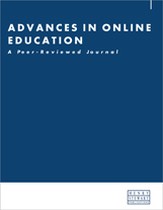Integrating simulation software to enhance online UAS and robotics learning: A case study
Abstract
Simulation software holds immense value in science, technology, engineering and mathematics (STEM) learning for various reasons. In both virtual and blended learning environments, it proves to be a powerful tool by providing immersive experiences and facilitating hands-on activities. These advantages extend to both synchronous and asynchronous learning settings. A notable trend in online learning and distance education involves the integration of interactive simulation platforms as effective educational tools. This paper offers an overview of the general advantages of simulation software platforms, focusing on STEM subjects, particularly uncrewed aircraft systems (UAS), commonly known as drones. Drawing insights from multiple simulation implementation projects in online UAS courses at Embry-Riddle Aeronautical University Worldwide (ERAU-WW), this paper discusses best practices and lessons learned. Additionally, key parameters for the implementation of simulation software are presented, aiming to assist educators in their decision-making processes. The recommendations section looks ahead to potential future research and explores emerging trends and developments in educational software simulation for STEM topics.
The full article is available to subscribers to this journal (subscription is free).
Author's Biography
Chris Janke ’s current research focus is the safe and secure integration of drones into airspace, the potential of urban air mobility, the use of robotics in education and the prevention of drone misuse. He also supports STE(A)M projects as a coach and trainer to teach drones and robotics and prepare the next generation for the future and emerging technologies.
Yuetong Lin joined Embry-Riddle Aeronautical University Worldwide in September 2016 as an associate professor in the Department of Engineering and Technology (now School of Engineering). Previously, he had been a faculty member of Electronics and Computer Engineering Technology at Indiana State University between 2005 and 2016, where he became a tenured associate professor and the coordinator for the Computer Engineering Technology programme.
Kimberly Luthi serves as a full-time faculty member at Embry-Riddle Aeronautical University Worldwide in the College of Aviation and Associate Program Chair of the BS in uncrewed and autonomous systems. She is an active member of Women in Aviation International. She holds a PhD from Old Dominion University, a Master of Science in aeronautics from Embry-Riddle and a Master of Education and Bachelor of Arts from the University of Florida. She has over 15 years’ experience in higher education, including both academic and professional experience in research and grants on workforce development and unmanned system-related fields. Her professional background includes various management roles overseeing sponsored projects across STEM disciplines. Kimberly is an FAA-certified remote pilot and research collaborator on increasing the access of non-traditional groups to aeronautical engineering and fields specific to aviation and unmanned systems.
Citation
Janke, Chris, Lin, Yuetong and Luthi, Kimberly (2024, June 1). Integrating simulation software to enhance online UAS and robotics learning: A case study. In the Advances in Online Education: A Peer-Reviewed Journal, Volume 2, Issue 4. https://doi.org/10.69554/JNFM1595.Publications LLP
